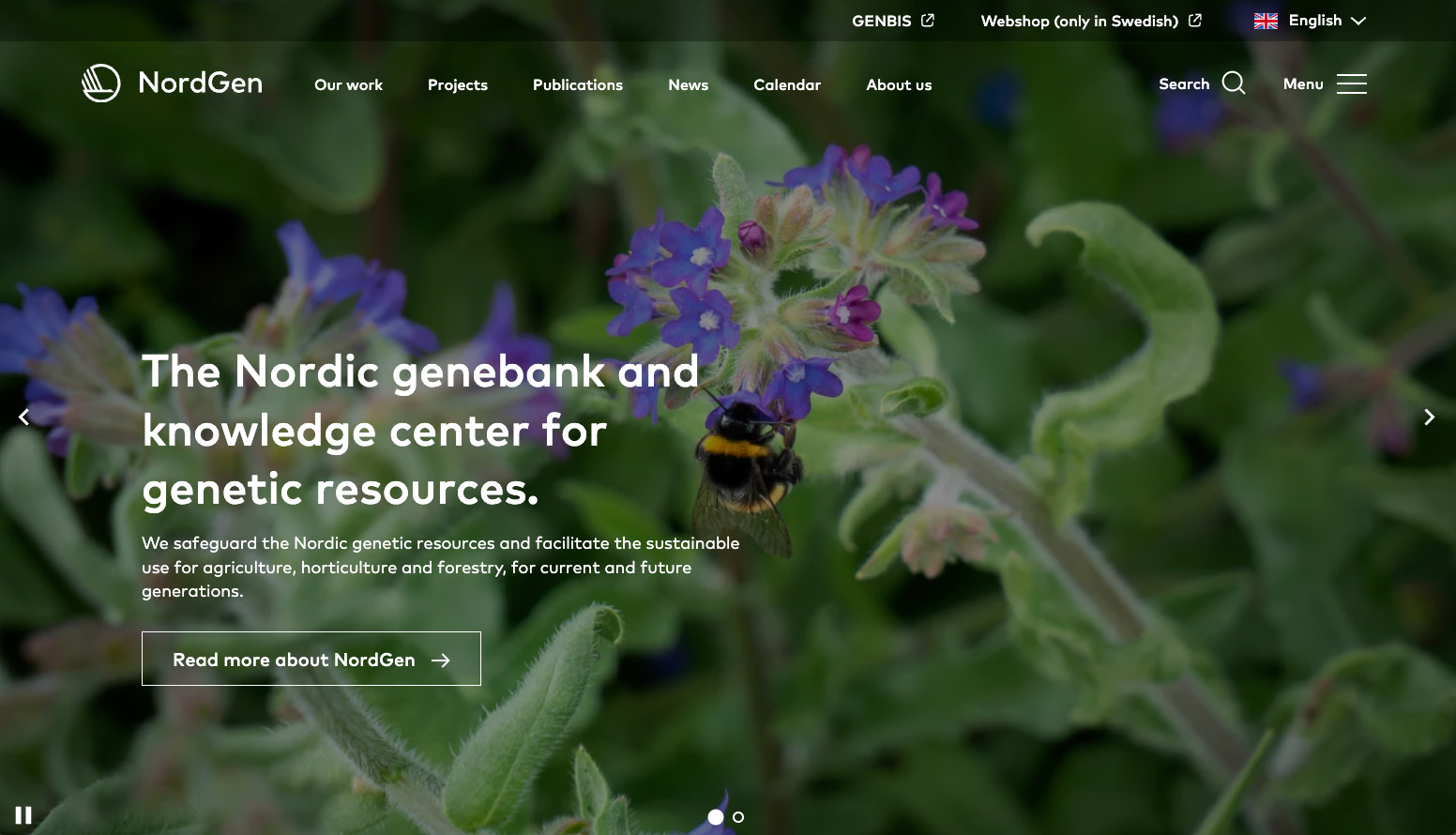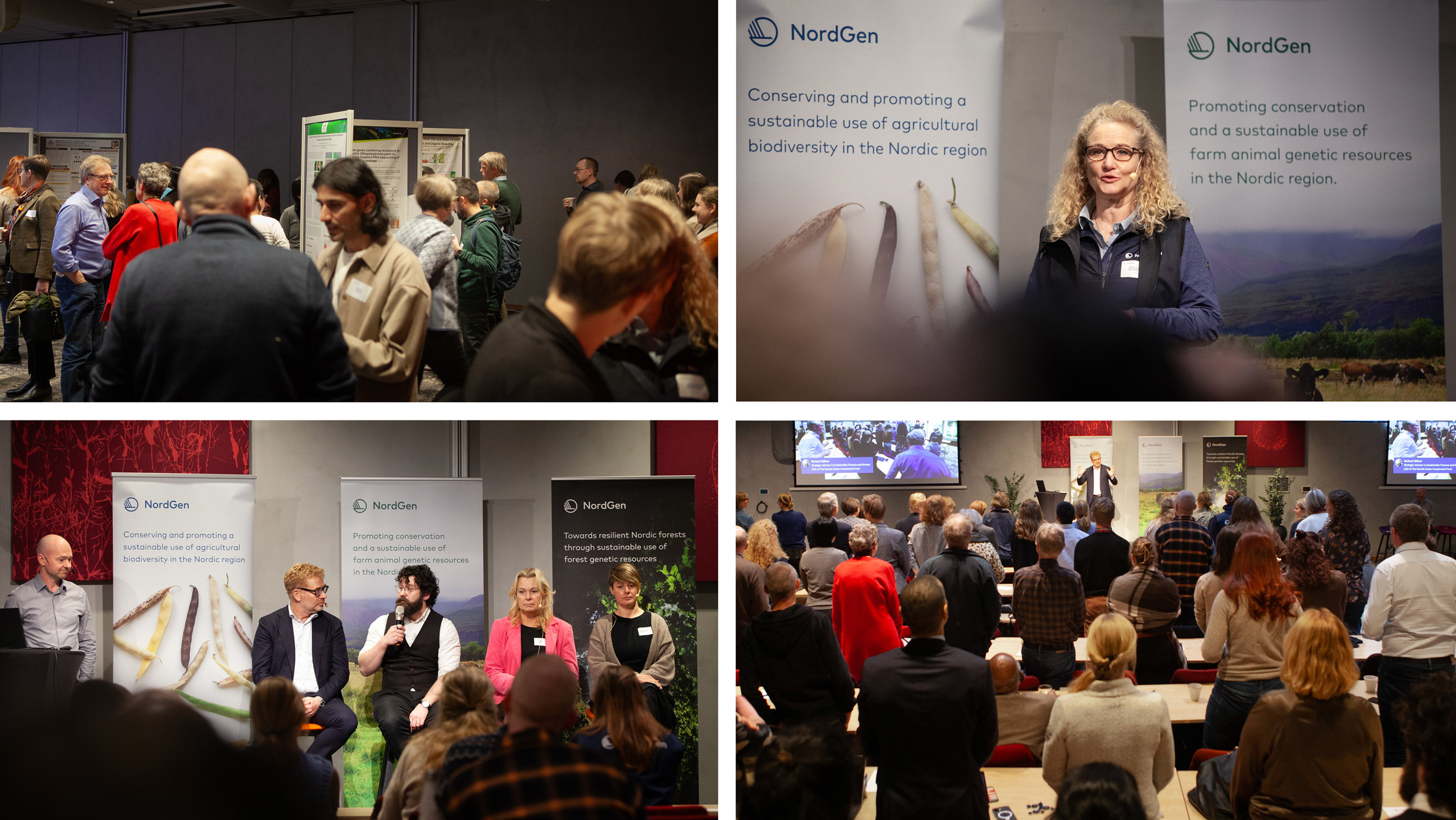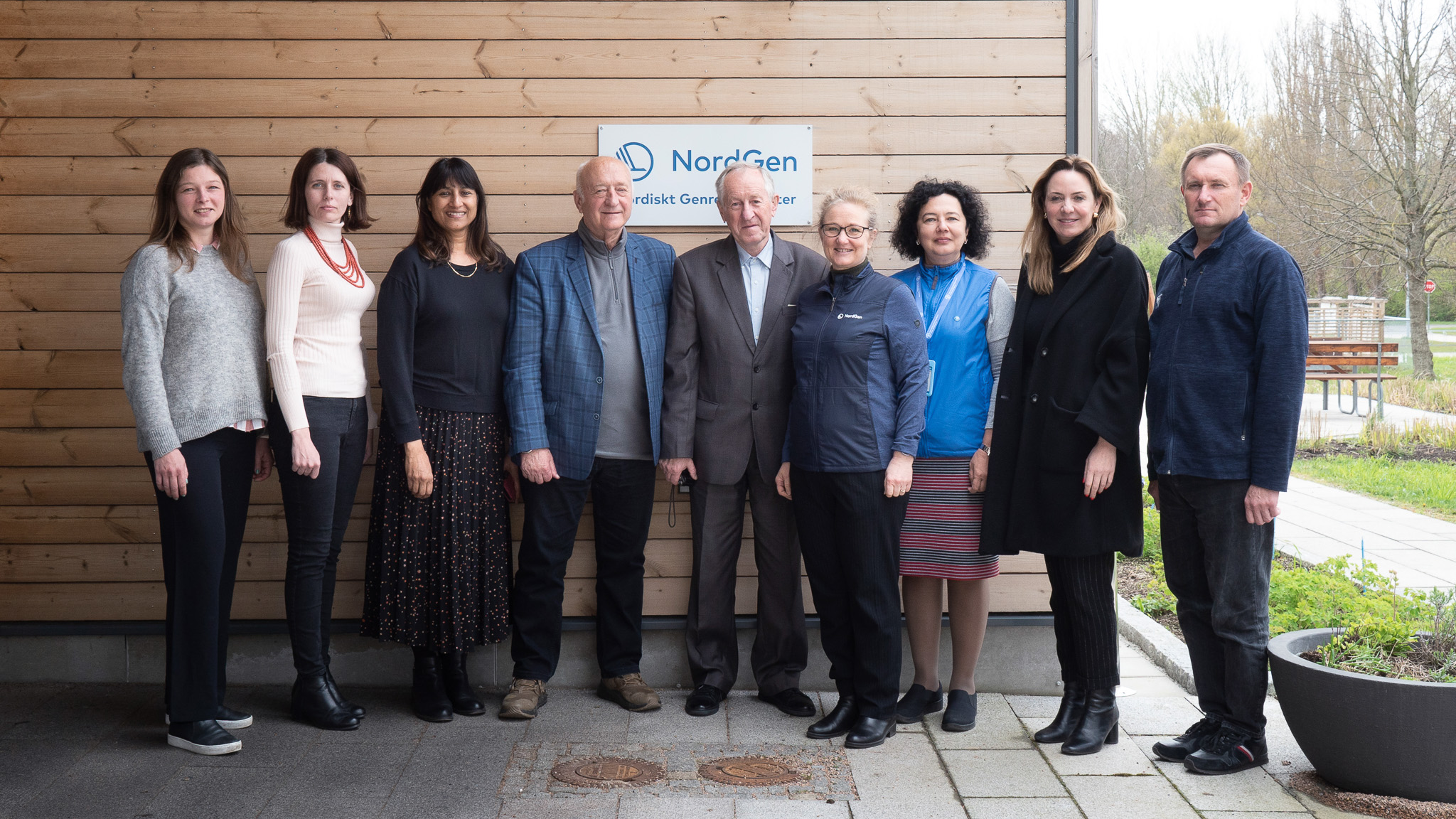
KNOWLEDGE CENTER
As the Nordic knowledge center for genetic resources, NordGen participates in and leads research projects, arranges outreach activities and shares information with relevant stakeholders concerning conservation and sustainable use of genetic resources important for food and agriculture. NordGen is also participating in several Nordic, European and International networks and commissions.
Our most important tools for exchanging knowledge within the Nordic countries are our working groups and councils. The different working groups of NordGen Plants, the working group and the council of NordGen Forest and the council of NordGen Farm Animals are vital advisory groups consisting of experts within each field from all the Nordic countries. The Board of NordGen also provides valuable input and knowledge exchange. Information is disseminated through our website nordgen.org, social media, project reports, press releases, arranged events, network meetings and targeted e-mails.
Top photo: A delegation from Abu Dhabi Agriculture and Food Saftey Authority visited NordGen during 2024.
Social media followers | 2022 | 2023 | 2024 |
|---|---|---|---|
Instagram | 2470 | 3014 | 3428 |
Facebook | 3789 | 4300 | 4784 |
LinkedIn | 1994 | 2732 | 3602 |
X | 1610 | 1951 | 1957 |
Table 1: Social media statistics, numbers from the month December. NordGen stopped using X during 2024.
In 2024, NordGen continued developing its competence within digitalization considerably. Video online meetings and seminars has increased the bridgebuilding over country borders, both internally and externally. Externally, our digital competence has enabled us to reach a wider audience that can take part in important knowledge sharing events concerning genetic resources without having to spend time and resources on travelling. It is expected that NordGen will continue to use these digital options at future events.
During the year, a new NordGen website was also launched. In addition to a more appealing and user-friendly design, the new website is also much easier to work in for NordGen's communications unit.
Conference on genetic resources
On 11 December, NordGen organized the "Nordic Conference on Genetic Resources - Possibilities and Urgency" in Malmö. About 140 participants attended the conference on-site in Malmö and almost 160 registered for the online streaming to listen to 12 speakers from a wide range of areas connected to different fields of genetic resources. The key takeaways from the conference were that genetic resources are excellent tools for the green transition. However, the Nordic collaboration needs to be maintained and communication accelerated to reach viable change.
In addition to this conference, NordGen organized two other conferences during 2024. Read more about these events in the chapters on forests and farm animals.

The new website was launched in June 2024.

Some examples from the conference: The poster exhibition contained 24 posters, Lise Lykke Steffensen during her presentation "Genetic Resources as tools for mitigating climate change and promote green transition", panel discussion and Michael Zöllner during the presentation "How to engage the business community in stronger biodiversity".
Other visits and external events
During 2024, interest in visiting NordGen remained high and the premises in Alnarp were visited by journalists, politicians, students, companies and other genebanks. Guests included delegations from Thailand National Rice Seed Storage Laboratory (NRSSL), The European Regional Focal Point for Animal Genetic Resources (ERFP) ad hoc action group, several Botanical gardens of Lithuania, Nordic Council of Ministers Senior Official Committee and Abu Dhabi Agriculture and Food Saftey Authority.
In April, NordGen hosted a meeting with the Ukrainian genebank and international experts to develop a strategy for securing Ukraine's invaluable plant genetic resources for food and agriculture (read more in Projects). On 14 June, stakeholders and other quests were invited to the "NordGen Day" in Alnarp for a day focusing on genetic resources including tours of the main building and laboratories, excursions of the greenhouse and field cultivations, festivities and informations stands on NordGen's operations. During the year, NordGen also organized specialized training programs for staff at the DOA Genebank in Thailand and The National Plant Gene Bank in Malta.
In the following pages, our different sections and their activities during 2024 will be introduced.
